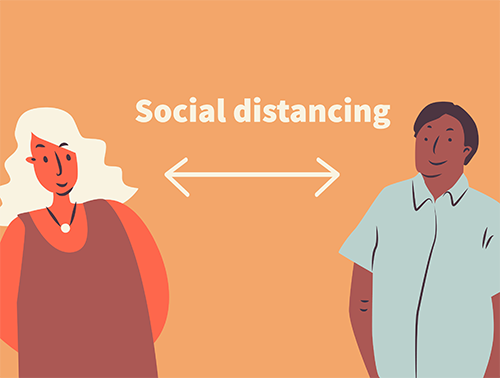
The law on signing wills in England and Wales is almost 200 years old and is very strict. The person making the will (the testator) has to sign his or her name on the will in front of 2 independent adult witnesses in person, who then must sign the will as witnesses in the physical presence of the testator.
With the guidelines on social distancing and those most at risk shielding, signing your will has never been more difficult. But, it is not impossible, and solicitors have had to come up with novel ways of making sure that a will is properly signed. If the will is not signed properly, the will is invalid and the gifts the will won’t be able to be made.
In response to the British Government’s guidelines, our staff are remote working and we are not holding any face to face client meetings at our offices but the implementation of our contingency plans means that we can continue to operate without disruption and this includes helping our clients with their wills. Our staff working at home have all they need to ensure that our work continues and we are “meeting” with our clients to advise them on their wills by FaceTime and WhatsApp video messaging.
Ministers say that there are no plans to relax the strict will signing rules which are there to protect everyone especially the elderly and the vulnerable, against fraud, but this has not been a barrier for our clients. We will do all we can to make sure that your will is validly executed. We can offer all our clients a “drive-through” will signing service. You can drive to our offices, safely stay in your car to sign your will and we will watch each other sign through the car window. We have witnessed wills on the front doorstep of our clients home, keeping a safe distance apart, always using separate pens, and we have even witnessed a will over the garden fence.
The demand for will writing services has increased, as people become more aware of their mortality given the current coronavirus pandemic. If you are thinking of writing a will, it is really important that you seek professional advice, as do-it-yourself wills from online templates carry the risk of being completed incorrectly leading to wills being invalid, gifts being made to the wrong people or give rise to complicated Inheritance Tax problems.
One area of particular concern is when someone wants to make a will shortly before they die. This are often called “death bed” wills. If the person making the will is very poorly and confined to bed, the witnessing of a will can prove to be very problematic. The witnesses must be independent and with the current restriction on movement visitors should not be calling in to see other people. Family members cannot act as witnesses to a will either. If they do, they will not be allowed to inherit anything in the will.
It is even more difficult if the testator is in hospital as visitors are not permitted at present, doctors and nurses are not allowed to bring potentially tainted documents to bedsides, and moreover, most NHS trusts have a policy that their staff are not permitted to act as witnesses to a will in any event. What this means is that if someone is in hospital it is likely that they will not be able to write a “death bed” will.
It has never been more important for us to encourage currently healthy people to get round to writing a will, a job that is very often put off to deal with other matters in your life or job. If you die without a valid will in place, the law states who gets what on your death. Under these laws, if you are cohabiting (not married or in a civil partnership), your partner will get nothing. Making a will gives you control over who gets what when you die and will not leave your family with an unnecessary Inheritance Tax burden.
If you need any help or advice during these unusual times, please speak to our wills and probate team.